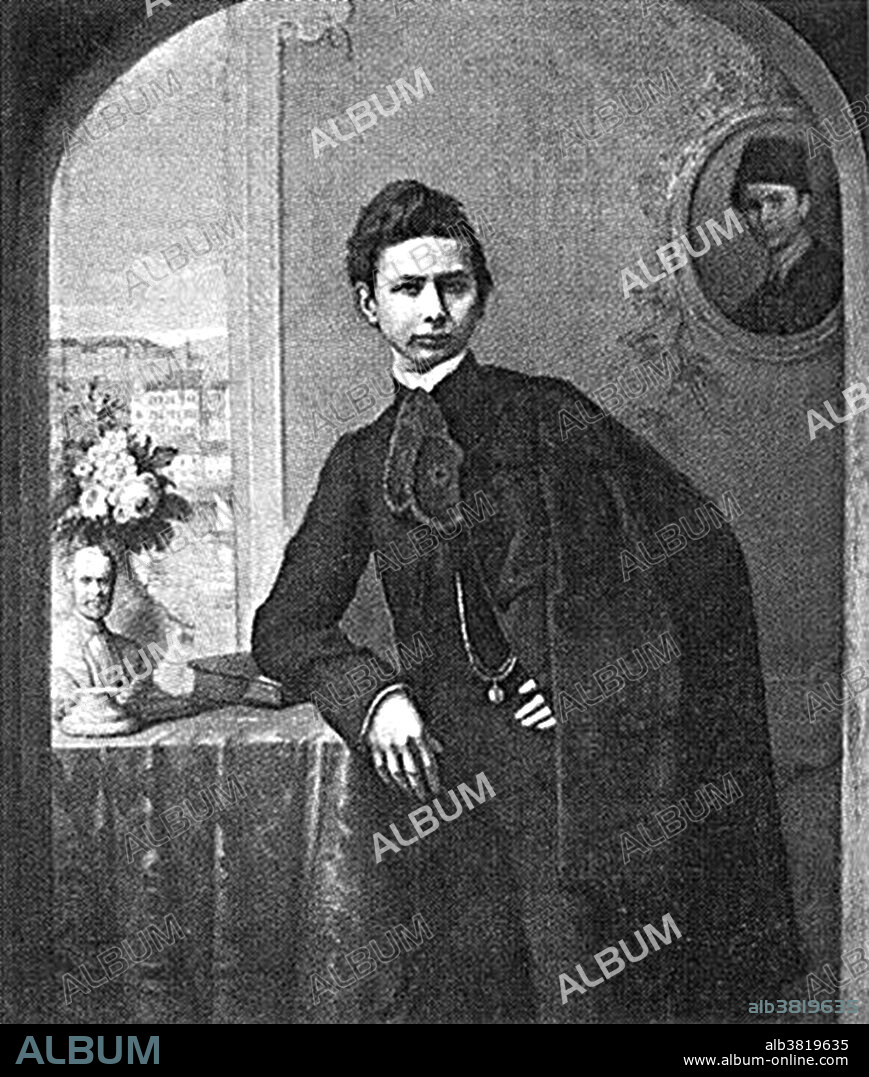alb3819635
Janos Bolyai, Hungarian Mathematician

|
Add to another lightbox |
|
Add to another lightbox |



Title:
Janos Bolyai, Hungarian Mathematician
Caption:
Janos Bolyai (December 15, 1802 - January 27, 1860) was a Hungarian mathematician, known for his work in non-Euclidean geometry, a geometry that differs from Euclidean geometry in its definition of parallel lines. The discovery of a consistent alternative geometry that might correspond to the structure of the universe helped to free mathematicians to study abstract concepts irrespective of any possible connection with the physical world. By the age of 13, he had mastered calculus and other forms of analytical mechanics, receiving instruction from his father. He became so obsessed with Euclid's parallel postulate and came to the conclusion that the postulate is independent of the other axioms of geometry and that different consistent geometries can be constructed on its negation. In addition to his work in geometry, Bolyai developed a rigorous geometric concept of complex numbers as ordered pairs of real numbers. He was an accomplished polyglot speaking nine foreign languages. No original portrait of Bolyai survives.
Credit:
Album / Science Source / New York Public Library
Releases:
Model: No - Property: No
Rights questions?
Rights questions?
Image size:
3600 x 4244 px | 43.7 MB
Print size:
30.5 x 35.9 cm | 12.0 x 14.1 in (300 dpi)
Keywords:
1802 • 1860 • 19TH CENTURY • ALTERNATIVE GEOMETRY • ART • ARTWORK • BOLYAI • BW • CELEBRITY • COMPLEX NUMBERS • DRAWING • EUROPEA • EUROPEAN • FAMOUS • FIGURE • GEOMETRIST • GEOMETRY • HISTORIC • HISTORICAL • HISTORY • HUNGARIAN • ILLUSTRATION • IMPORTANT • JANOS BOLYAI • MALE • MAN • MATH • MATHEMATIC • MATHEMATICAL • MATHEMATICIAN • MATHEMATICS • MEN • NON-EUCLIDEAN • NOTABLE • PARALLEL POSTULATE • PEOPLE • PERSON • PERSONALITIES • PERSONALITY • POLYGLOT • PORTRAIT • POTRAIT • REAL NUMBERS • SCIENCE • WELL-KNOWN
 Pinterest
Pinterest Twitter
Twitter Facebook
Facebook Copy link
Copy link Email
Email

